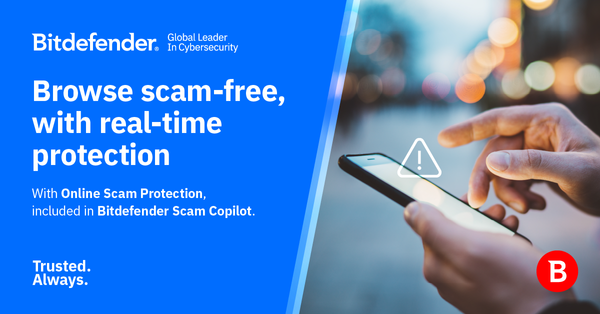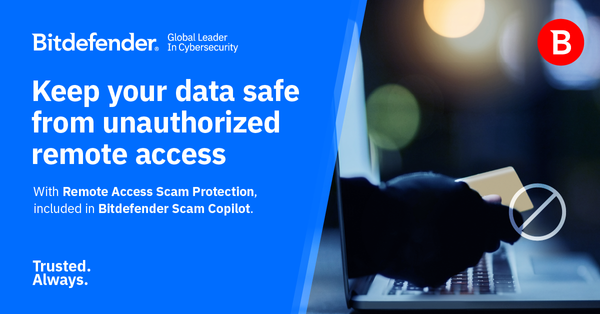Can VPN Protect You from DoS and DDoS Attacks?

The online world lets you stay in touch with your peers, saves you time paying bills, helps you research complicated topics from the comfort of your desk chair, among many other benefits. It also, though, has drawbacks.
Connectivity issues are among those downsides, but they’re mainly just a nuisance we all have to deal with every once in a while. Cyberattacks, on the other hand, can spell disaster.
Currently, one of the most popular cyberattacks is the Denial of Service (DoS) and its meaner sibling, Distributed Denial of Service (DDoS).
What are DoS and DDoS attacks?
As their names suggest, denial of service attacks are cyberattacks meant to disrupt normal network activity by flooding a targeted resource with traffic. While DoS and DDoS have the same goal of making websites or network resources unavailable, a few traits set them apart, namely:
- DoS attacks are system-on-system, while DDoS attacks use multiple machines to flood the target
- DDoS are harder to detect and mitigate because they use machines from several remote locations
- DDoS attacks frequently use botnets, which makes it complicated to trace their origin
- DoS attacks use a single location, which makes them slower than their distributed counterpart
- DDoS attacks deliver huge volumes of traffic, overloading network resources faster and more efficiently
Unfortunately, any device with an active Internet connection can fall prey to denial-of-service attacks. However, technological advancements have made it possible to defend yourself against DoS and DDoS attacks.
Can VPN stop DoS and DDoS attacks?
The first step of a denial-of-service attack is zeroing in on the target. On the Internet, each entity is assigned identification in the form of an IP address. Once the attackers have the target IP address, they can launch a DoS or DDoS attack against their victim.
VPNs are primarily known for their ability to hide your IP address, which makes it incredibly difficult for threat actors to aim denial-of-service attacks at you. To answer your question: yes, a VPN can stop DoS and DDoS attacks.
Not foolproof against DoS and DDoS
However, a VPN can’t do much in a few scenarios. If the attacker has a backdoor on your system or has infected your machine with a Remote Access Trojan (RAT), they may be able to find your real IP address. Once an attacker gets wind of your real IP address, they can bypass the IP-cloaking protection that a VPN provides you with.
This complicates things even more if you use a static IP address, as the threat actors can target you repeatedly unless you change it. Note that a VPN can’t stop a DoS or DDoS attack that’s already underway.
Attackers could also attempt to breach the VPN company’s servers. If the company’s defense mechanisms are weak, it could pose a risk to its entire customer base. That’s why you should stick with solid, established providers, such as Bitdefender VPN.
Furthermore, if attackers constantly monitor your connection, you may be at risk even while using a VPN if the VPN connection briefly drops. Most systems are configured to switch to their default, unsecured connection if the VPN drops, letting the attacker see your actual IP address.
Modern VPNs such as Bitdefender VPN include an Internet kill switch that prevents your device from reverting to its default, unsecured connection if the VPN connection suddenly drops.
Keep your VPN connection on all the time
While VPNs are no silver bullets against denial-of-service attacks, they can discourage threat actors from choosing you as their target by cloaking your IP address.
One way you could achieve peace of mind in regard to DoS and DDoS attacks would be to keep your VPN on all the time. The longer you spend under your VPN’s privacy shield, the harder it is for threat actors to match you with your real IP address.
Last but not least, avoid accessing shady websites, downloading content from untrusted sources on your PC, or interacting with suspicious email attachments. If attackers manage to backdoor your system, they could quickly identify your real IP address, leaving you vulnerable to DoS and DDoS attacks and rendering your VPN useless in this situation.
tags
Author

Vlad's love for technology and writing created rich soil for his interest in cybersecurity to sprout into a full-on passion. Before becoming a Security Analyst, he covered tech and security topics.
View all postsRight now Top posts
How to Protect Your WhatsApp from Hackers and Scammers – 8 Key Settings and Best Practices
April 03, 2025
Outpacing Cyberthreats: Bitdefender Together with Scuderia Ferrari HP in 2025
March 12, 2025
Streamjacking Scams On YouTube Leverage CS2 Pro Player Championships to Defraud Gamers
February 20, 2025
How to Identify and Protect Yourself from Gaming Laptop Scams
February 11, 2025
FOLLOW US ON SOCIAL MEDIA
You might also like
Bookmarks









